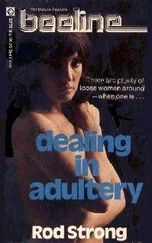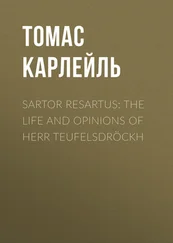Vladimir Nabokov - Strong opinions
Здесь есть возможность читать онлайн «Vladimir Nabokov - Strong opinions» весь текст электронной книги совершенно бесплатно (целиком полную версию без сокращений). В некоторых случаях можно слушать аудио, скачать через торрент в формате fb2 и присутствует краткое содержание. Город: New York, Год выпуска: 1990, Издательство: First Vintage International Edition, Жанр: Классическая проза, на английском языке. Описание произведения, (предисловие) а так же отзывы посетителей доступны на портале библиотеки ЛибКат.
- Название:Strong opinions
- Автор:
- Издательство:First Vintage International Edition
- Жанр:
- Год:1990
- Город:New York
- ISBN:нет данных
- Рейтинг книги:4 / 5. Голосов: 1
-
Избранное:Добавить в избранное
- Отзывы:
-
Ваша оценка:
- 80
- 1
- 2
- 3
- 4
- 5
Strong opinions: краткое содержание, описание и аннотация
Предлагаем к чтению аннотацию, описание, краткое содержание или предисловие (зависит от того, что написал сам автор книги «Strong opinions»). Если вы не нашли необходимую информацию о книге — напишите в комментариях, мы постараемся отыскать её.
Strong opinions — читать онлайн бесплатно полную книгу (весь текст) целиком
Ниже представлен текст книги, разбитый по страницам. Система сохранения места последней прочитанной страницы, позволяет с удобством читать онлайн бесплатно книгу «Strong opinions», без необходимости каждый раз заново искать на чём Вы остановились. Поставьте закладку, и сможете в любой момент перейти на страницу, на которой закончили чтение.
Интервал:
Закладка:
JULIAN MOYNAHAN
Mr. Moynahan in his charming «Lolita and Related Memories» recalls his professor of Russian, the late Dr. Leonid Strakhovski (most foreign-born lecturers used to be «doctors»). I knew him, he did not really resemble my Pnin. We met at literary parties in Berlin half a century ago. He wrote verse. He wore a monocle. He had no sense of humor. He dwelt in dramatic detail on his military and civil adventures. Most of his yarns had a knack of fading out at the critical point. He had worked as a trolley car driver and had run over a man. The rowboat in which he escaped from Russia developed a leak in the middle of the Baltic. When asked what happened then, he would wave a limp hand in the Russian gesture of despair and dismissal.
ELLENDEA PROFFER
Ellendea Proffer's report on my Russian readers is both heartening and sad. «All Soviet age groups», she observes, «tend to feel that literature has a didactic function». This marks a kind of dead end, despite a new generation of talented people. «Zhalkiy udel (piteous fate)», as the Literaturnaya Gazeta says a propos de bottes (March 4, 1970).
STANLEY ELKIN
Several passages in Mr. Elkin's «Three Meetings», a parody of an «I remember . . «. piece, are extremely funny, such as the farcical variety of repetition or the casual reference to the «lovely eggal forms» he and I encountered on «an expedition up the Orinoco». And our third meeting is a scream.
ROBERT P. HUGHES
Mr. Hughes in his «Notes on the Translation of Invttatton to a Beheading» is one of the few critics who noticed the poetry of the Tamara terraces with their metamorphosed tamaracks. In the trance of objectivity which the reading of the festschrift has now induced in me, I am able to say that Mr. Hughes' discussion of the trials and triumphs attending that translation is very subtle and rewarding.
CARL R. PROFFER
Mr. Proffer, who discusses another translation, that of my much older Korol', Dama, Valet, tackles a more ungrateful task, first because King, Queen, Knave «does not surmount its original weaknesses», and secondly because revision and adaptation blur one's interest in faithfulnesses. He wonders what «worse sins» (than planning the murder of his uncle) cowardly and brutal Franz could have committed between the twenties and sixties in Germany, but a minute's thought should reveal to the reader what the activities of that type of man could have been at the exact center of the interval. Mr. Proffer ends his «A New Deck for Nabokov's Knaves» by saying he expects the English version of Mashenka to be quite different from the Russian original. Expectation has been the undoing of many a shrewd gambler.
W. B. SCOTT
I had read and hugely enjoyed Mr. Scott's essay on my EO translation, «The Cypress Veil», when it first appeared in the Winter, 1965, issue of the TriQuarterly. It is a most refreshing piece. My improved cab is now ready for publication.
Mr. Scott is also responsible for the last item in the volume, a letter addressed by Timofey Pnin to «Many respected Professor Apple [sic]», a stunning affair in which scholarship and high spirits interlace to produce the monogram of a very special masterpiece. And that frozen frenzy of footnotes!
SAUL STEINBERG
There is magic in every pen-stroke and curlicue of the delightful diploma that Saul Steinberg has drawn for my wife and me.
R. M. ADAMS
Mr. Adams' letter about me addressed to «M. le Baron de Stendhal» is an extremely witty piece — reminding me, I do not know why, of those macabre little miracles that chess problemists call suimates (White forces Black to win in a certain number of moves).
ANTHONY BURGESS
In Mr. Burgess' poem I particularly appreciate his Maltese grocer's cat that likes to sit upon the scales and is found to weigh 2 rotolos.
ALBERT J. GUERARD
''Not even Colette», says Mr. Guerard in his tribute to Ada, «rendered fleshly textures and tones with such grace». The lady is mentioned in Ada.
HERBERT GOLD
Blending fact and fiction in a kind of slat-sign shimmer, Mr. Gold recalls our meetings in upstate New York and in a Swiss hotel. I recall with pleasure my correspondence with the puzzled editor of the Saturday Evening Post for which he had written what I had thought was to be an interview with me — or, at least, with the person I usually impersonate in Montreux
RICHARD HOWARD
Mr. Howard's poem «Waiting tor Ada» contains a wonderful description of a Grand Hotel du Miroir very like some of the «nearly pearly nougat-textured art-nouveau» places where I have been «working wickedly away» during recent stjours in Italy.
JOHN UPDIKE
I am grateful to Mr. Updike for mentioning, in his stylish tribute, the little Parisian prostitute whom Humbert Humbert recalls so wistfully. On the other hand there was no reason at all for that harsh and contemptuous reference to a small publishing house which brought out excellent editions of four books of mine.
R. H. W. DILLARD
Mr. Dillard's poem «A day, a country home» is most attractive — especially the «light through the leaves, like butterflies» in the fourth stanza.
HORTENSE CALISHER
Miss Calisher's contubernal contribution expresses in a sophisticated metaphor her readiness to share the paranoia of her fellow writers. Oddly enough, even the best tent is absolutely dependent on the kind of country amidst which it is pitched.
JACK LUDWIG
I remember, not without satisfaction, how fiercely and frequently, during my last year of high school in Russia (which was also the first year of the revolution), most of my teachers and some of my schoolmates accused me of being a «foreigner» because I refused to join in political declarations and demonstrations. Mr. Ludwig in his splendid little article indicates with great sympathy and acumen the possibility of similar accusations being made by my new fellow-citizens. They could not vie with Vladimir Vasilievich Gippius, my fiery, red-haired teacher of Russian literature.
J. BARTH
Dear Mr. R.
Thanks for your birthday greetings. Let me wish you many returns of the same day. How many nice people crowd around my cradle! It is pleasant to know you like Max Planck. I rather like him, too. But not Cervantes!
Yours cordially,
V. N.
CLARENCE BROWN
Lines 31-32 of Mr. Brown's fascinating poem in Russian display a loopingtheloop inversion of which old Lomonosov might have been proud: «Why, better of Dante's Hell for him to burn in the seventh circle» if translated lexically. His cartoons in a British weekly are marvelous.
CHARLES NEWMAN
The editor of the TriQuarterly, in «Americanization of V. N». (an exhilarating physical process in the present case!) recalls taking Pale Fire «to Basic Training in hot Texas», tearing it from its binding, and keeping it «pure and scrolled in my Fatigues' long pocket like a Bowie knife» safe
from the Barracks Sergeant. It is a beautifully written, and most touching, epic.
DAVID WAGONER
Laughter in the Dark is paid a suitable tribute in Mr. Wagoner's sinister poem.
RICHARD STERN
I like the epithets «opulent, triplicitous», in Mr. Stern's lines, but I am not sure that any of the four Karamazovs (grotesque, humorless, hysterical, and jejune, respectively) can be defined as «triste».
ANDREW FIELD
My good friend, Mr. Field, has contributed some brilliantly worded remarks, one of which refers to V.N.'s being «counted upon to observe the hoisting of his statue (Peter the Great seated upon an invisible horse)». This reminded me suddenly of a not-unsimilar event in California where some fancy statuary, lovingly erected by a Russian group to commemorate Pushkin's duel, partly disintegrated after a couple of years' exposure, removing Pushkin but leaving intact the figure of magnificent Dantes pointing his pistol at posterity.
Читать дальшеИнтервал:
Закладка:
Похожие книги на «Strong opinions»
Представляем Вашему вниманию похожие книги на «Strong opinions» списком для выбора. Мы отобрали схожую по названию и смыслу литературу в надежде предоставить читателям больше вариантов отыскать новые, интересные, ещё непрочитанные произведения.
Обсуждение, отзывы о книге «Strong opinions» и просто собственные мнения читателей. Оставьте ваши комментарии, напишите, что Вы думаете о произведении, его смысле или главных героях. Укажите что конкретно понравилось, а что нет, и почему Вы так считаете.










